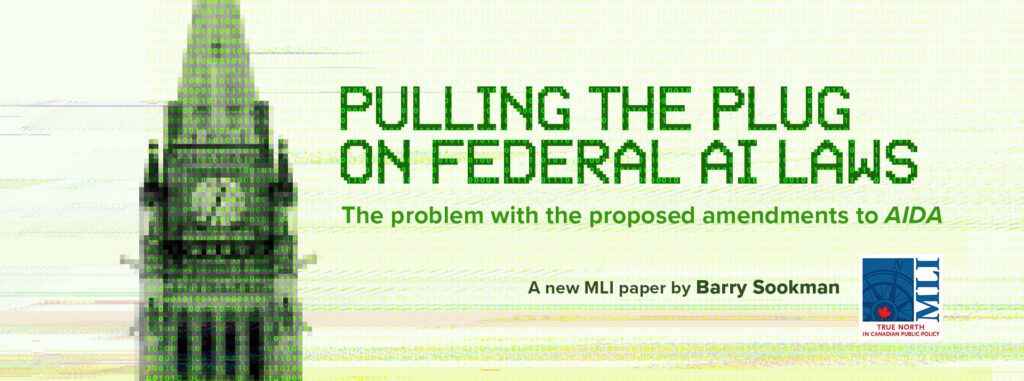By David Livingstone, January 21, 2025
Now that Justin Trudeau has promised to resign as prime minister, people are asking, why did it take him so long to decide? As many critics have pointed out, by delaying his decision Trudeau has left Canada leaderless during a dangerous time. But we should also be asking this: why did the Liberal caucus allow him to drag out his decision for so long? Trudeau is not the only one to blame.
Everyone could see wheels were starting to come off the Liberal bus a long time ago. Well, everyone except Trudeau, apparently. After two Liberal by-election losses in September, columnist Don Braid said Trudeau’s “resistance to the obvious is almost pathological.” By mid-October, twenty-four caucus members signed a letter demanding Trudeau’s resignation by October 28th. Yet Trudeau emerged from the closed-door meeting with Liberal MPs adamant he was staying on as prime minister to fight the next election. There was no formal mechanism by which the liberal caucus could remove Trudeau against his will, and so the drama continued.
It was precisely to avoid these drawn-out leadership controversies that the Reform Act was created in 2014. Had the Liberal caucus adopted the Reform Act’s provisions after the last election, Canada probably wouldn’t be in this predicament now.
Conservative MP Michael Chong created the act to bring our institutions back in line with the principles of responsible government. Party leaders have too much power, he claimed, and that was especially true for the prime minister, no matter which party he or she represents. Chong said this, we should remember, when his own party was in power and Stephen Harper was prime minister. Responsible government is supposed to mean the prime minister and cabinet are responsible to the elected House of Commons. And that implies they are responsible to their own caucus, too.
But over the years, party loyalty has eroded responsible government. As party leaders have grown more powerful, the individual MPs who are supposed to represent us have become less independent and more beholden to their leaders.
Chong hoped the Reform Act would rebalance things by emboldening the members of each party caucus. The Reform Act specified, for example, that if enough caucus members voted for a review, they could trigger a formal leadership contest. It seems to have worked in 2021.
When the Conservatives were upset with the party’s then-Leader Erin O’Toole in 2021, caucus leaned on the Reform Act provisions to trigger a leadership vote. A majority expressed dissatisfaction with O’Toole. Caucus appointed an interim leader, held a leadership convention, and then eventually replaced O’Toole with Pierre Poilievre. The whole thing happened quickly because the rules were clearly spelled out in advance in the Reform Act.
Meanwhile, the Liberals’ internal struggles have lasted many months – and they will continue for several months more as all of Canada waits for the Liberal Party’s leadership race to unfold.
Partly, this results from the Reform Act being watered down on its way to becoming law in 2015 – after each general election, each party caucus gets to vote on whether the law will apply to them or not.
The Samara Centre for Democracy tracked which parties applied the Reform Act’s provisions after the 2015 and 2019 elections (the only years Samara has reported on so far). The Conservative and Bloc caucuses each adopted portions of the Reform Act. The Liberals and NDP, on the other hand, either didn’t hold the required vote at all or voted to reject the act’s provisions. As the Samara Centre reports, “the choice to pass on the powers of the Act left caucus membership squarely under the control of the party leader.” We are all now living through the consequences of that choice.
When TVO’s Steve Paikin asked Chong why we needed the Reform Act, he replied “when we have leadership crisis like we’ve seen in the Martin/Chretien years and like we saw during the final days of the Canadian Alliance and Progressive Conservative parties we tend to have drawn-out protracted leadership crises where months, if not years, are taken up with internal fighting by party members and caucus members.”
This is what we are facing now, a protracted leadership crisis at a moment when Canada needs focus and leadership.
The development of party discipline and the concentration of power in the hands of the party leaders has eroded democratic accountability. The Reform Act should be amended so that the parties no longer get to choose whether the law applies to them or not. It should simply become a requirement so that we do not end up in interminable party leadership squabbles while the ship of state drifts rudderless into troubled waters.
David Livingstone is a professor of liberal studies and political studies at Vancouver Island University and a contributing writer to the Macdonald-Laurier Institute.







